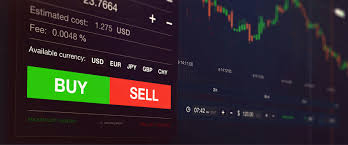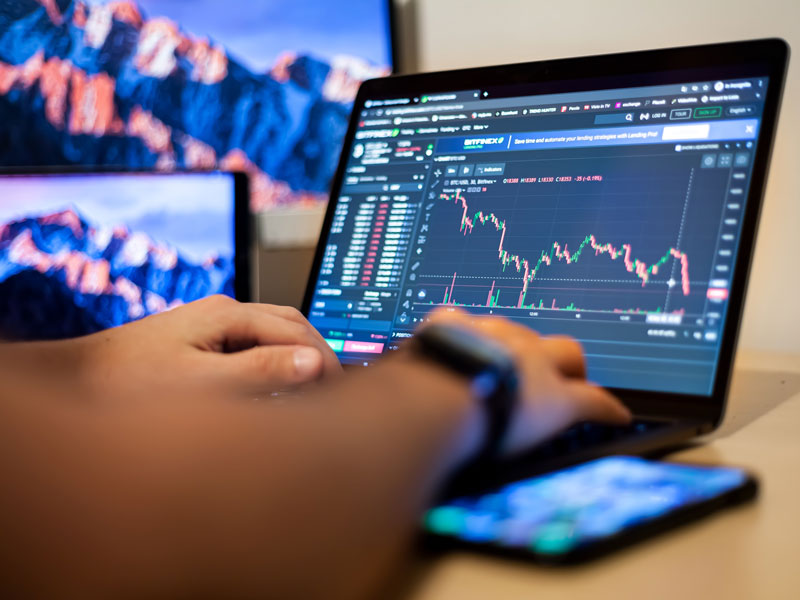The Future of Trading AI and Forex

The Future of Trading: AI and Forex
The world of forex trading has been significantly transformed by the advent of artificial intelligence (AI). As traders seek more efficient and effective strategies, the integration of AI technology has emerged as a game-changer. With sophisticated algorithms and machine learning capabilities, AI is not only streamlining trading processes but also enhancing decision-making. Moreover, ai forex trading Top Sharia Forex Platforms have started adopting AI tools to cater to a more diverse clientele, ensuring compliance with Islamic finance principles while embracing innovative technology.
Understanding AI in Forex Trading
Artificial intelligence refers to the simulation of human intelligence in machines that are programmed to think like humans and mimic their actions. In the context of forex trading, AI utilizes massive datasets to identify patterns, make predictions, and execute trades autonomously. These systems can process vast amounts of information at a speed and accuracy that far surpasses human capabilities. By leveraging machine learning and neural networks, AI systems can learn from past market behavior to improve future performance continually.
Advantages of AI in Forex Trading
There are several advantages to incorporating AI technology into forex trading strategies:

- Speed and Efficiency: AI algorithms can analyze market data in real-time, enabling faster decision-making compared to manual trading. This speed can be crucial in the volatile forex market, where opportunities can arise and disappear in seconds.
- Data Analysis: The forex market generates enormous data on currency movements, economic indicators, and geopolitical events. AI systems can process this data and extract actionable insights, providing traders with a solid foundation for their strategies.
- Emotionless Trading: One of the biggest challenges faced by traders is emotional decision-making which can lead to significant losses. AI systems operate based on data and algorithms, removing human emotions from the equation and allowing for more rational trading decisions.
- Backtesting and Optimization: AI can simulate various trading strategies using historical data to assess their potential effectiveness. This process, known as backtesting, helps traders optimize their strategies before applying them in live market conditions.
Challenges and Limitations
While the advantages of AI in forex trading are substantial, there are also challenges and limitations to consider:
- Market Volatility: The forex market is subject to rapid changes driven by economic news, political events, and other factors. While AI can analyze historical patterns, it may not always predict sudden market shifts accurately.
- Overfitting: AI systems can sometimes become too tailored to past data, leading to overfitting where the model performs well on historical data but fails in real-time trading scenarios.
- Dependence on Technology: Relying heavily on AI can be risky, especially during technical failures or if the system malfunctions. Traders must be prepared to take manual control when necessary.
- Complexity and Costs: Developing and implementing AI trading systems can be complex and costly. Not all traders have the resources or expertise to harness the full potential of these technologies.
The Role of Machine Learning
Machine learning, a subset of AI, plays a critical role in forex trading. It allows algorithms to learn from data, continually improving their accuracy over time. For example, machine learning models can analyze past price movements and economic conditions to forecast future currency trends. These predictive models can be used to set automated trading strategies, which can take advantage of small price changes that may occur within a day.
AI Trading Tools
There are numerous AI trading tools available today that can assist traders in the forex market. Some notable categories include:

- Automated Trading Systems: These platforms use AI algorithms to execute trades automatically based on predefined conditions, minimizing the need for manual intervention.
- Sentiment Analysis Tools: These tools use AI to scan news articles, social media, and other sources to gauge market sentiment, allowing traders to make informed decisions based on public opinion.
- Risk Management Tools: AI can assist in evaluating and managing risk by analyzing portfolio performance and market conditions to suggest adjustments to trading strategies.
The Future of AI in Forex Trading
The integration of AI in forex trading is expected to grow exponentially in the coming years. As technology advances, we can anticipate even more sophisticated AI systems that provide enhanced features and capabilities. Improved algorithms, better data access, and increased computational power will likely lead to more accurate predictions and successful trading strategies.
Additionally, the rise of AI-driven platforms will democratize access to trading tools, enabling more retail traders to leverage advanced technologies that were previously only available to institutional investors. As these platforms continue to evolve, it will be crucial for traders to stay informed about AI trends and how they can harness this technology to their advantage.
Conclusion
AI is revolutionizing the forex trading landscape, providing traders with powerful tools to enhance their decision-making and trading efficiency. While the benefits of AI in trading are significant, it is also essential to approach this technology with caution, considering its limitations. By understanding and embracing AI technology, traders can position themselves at the forefront of the evolving forex market and better navigate its complexities.

